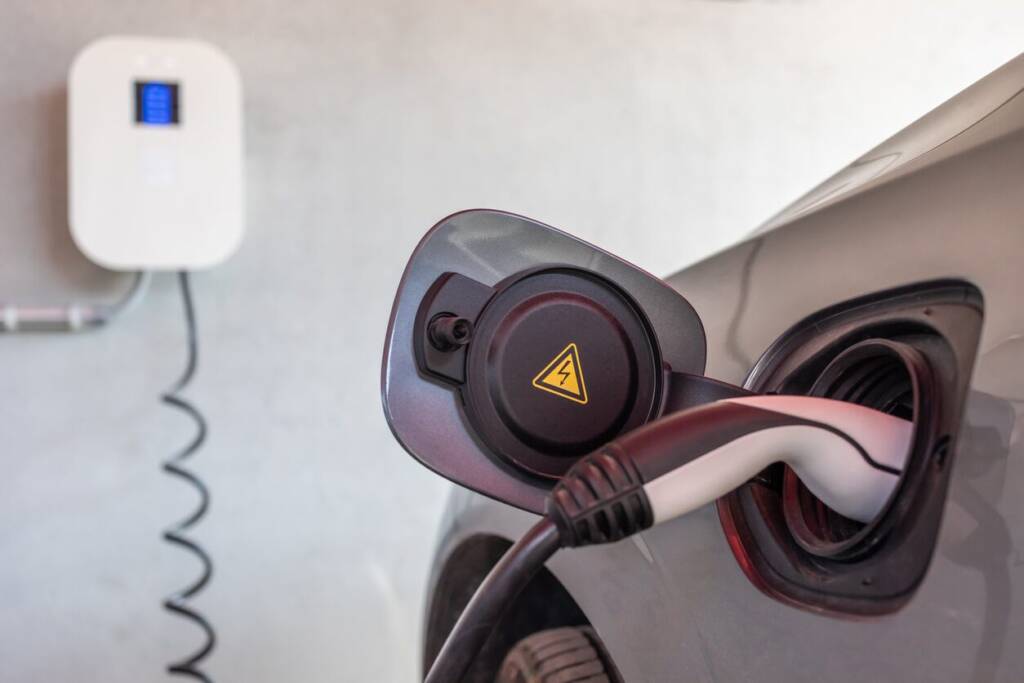You’ve probably heard of miles per gallon (MPG), but you may not be familiar with the term miles per gallon equivalent (MPGe).
What Is MPGe?
Miles per gallon equivalent is the standard metric set by the U.S. Environmental Protection Agency (EPA) for fuel efficiency for vehicles that run on alternative energy sources, like electricity. Plug-in hybrid electric vehicles (PHEVs) may have both an MPG and MPGe, since they run on both gasoline and electric energy. The MPG for a PHEV denotes gasoline used when the battery is out of charge, and the MPGe refers to an all-electric scenario.
MPGe was developed by the EPA in 2010. Although it’s not a 1:1 comparison to MPG, it enables drivers to make a more informed decision when contemplating an energy-efficient vehicle. Each new electric vehicle has its MPGe rating displayed on its EPA fuel efficiency label, information that can also be found on the EPA website.
MPG and MPGe Calculation Explained
Just like MPG, MPGe is an average mileage comparison – how many miles can a vehicle travel per gallon of gasoline (MPG) or how many miles can an EV travel on the equivalent amount of electrical energy (MPGe). The energy contained in 1 gallon of gas is equivalent to 33.7 kWh (kilowatt hours) of electricity. So for example, if an electric vehicle can travel 100 miles on 33.7 kWh of electricity, it would be rated with an MPG equivalency of 100 MPGe.

EPA EV Window Sticker Explained
The label includes mandated information about any new vehicle for sale including fuel efficiency, fuel costs, and greenhouse gas and smog ratings. For electric vehicles, the label has some additional pieces of information specific to EVs. Here’s a brief explanation of key elements on the EV labels.
- Kilowatt-Hours Per 100 Miles: The EPA standard of measuring energy efficiency in EVs.
- MPGe: Miles per gallon equivalent
- Annual Fuel Cost: This is estimated based on an annual driving range of 15,000 miles and 12.5 cents per kWh electricity cost.
- Driving Range: Estimated driving range, calculated for when a vehicle has 90% charge.

- MPGe City: 127
- MPGe Highway: 108
- MPGe Combined: 118
- kWh/100 mi: 29
- Driving Range: 259
- Greenhouse Gas Rating: 10 out of 10 (best possible)
- Smog Rating: Depends on state
- Savings In Fuel Costs Over 5 Years: $6,500
- Annual Fuel Cost: $550
Cost Savings of Electric Cars
EVs can be more expensive to purchase, but the total cost of ownership can be lower because electricity powered motors are more efficient (and cheaper to operate) than gas-powered engines. Most EVs can be over 90% efficient in converting energy into power while most gas-powered vehicles are only around 40% efficient. Since less energy is wasted, electric cars become more cost-effective. EVs also have significantly lower maintenance costs because there are so few moving parts and reduced maintenance needs.
RELATED READING: Why the Time to Prepare for Fleet Electrification Is Now
EV Fuel Efficiency Comparison Chart
This chart compares the fuel efficiency of a few recent EV models.
| Combined MPGe | kWh/100 Miles | Annual Fuel Cost | Range | |
| 2022 Tesla Model S | 120 MPGe | 28 kWh/100 miles | $550 | 405 miles |
| 2022 Chevrolet Bolt EV | 120 MPGe | 28 kWh/100 miles | $550 | 259 miles |
| 2022 Rivian R1S | 60 MPGe | 49 kWh/100 miles | $950 | 316 miles |
This chart was compiled using information from the U.S. Department of Energy. Annual fuel cost is based on 45% highway and 55% city driving, 15,000 annual miles, and recent fuel prices.

